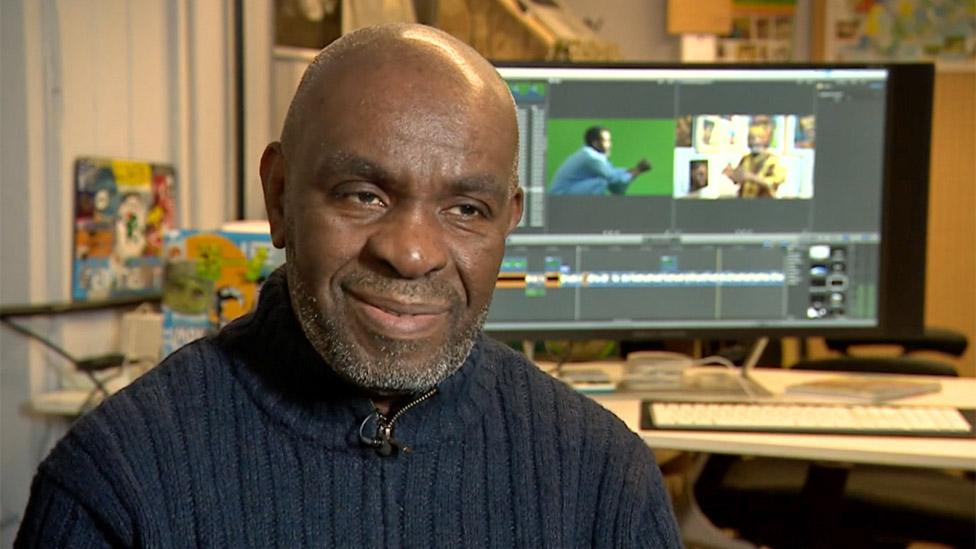Menelik Shabazz: Tributes to 'pioneer of Black British filmmaking'
- Published

Tributes have been paid to pioneering black British film-maker Menelik Shabazz, who has died at the age of 67.
Shabazz was best known for his 1981 film Burning an Illusion, which saw him become only the second black director of a British-made feature.
His family described him as "a passionate film-maker who forged the way for others" and Bafta called him, external "a pioneer of Black British filmmaking".
Shabazz also founded The Black Filmmaker Magazine.
Allow X content?
This article contains content provided by X. We ask for your permission before anything is loaded, as they may be using cookies and other technologies. You may want to read X’s cookie policy, external and privacy policy, external before accepting. To view this content choose ‘accept and continue’.
He died on Monday of diabetes-related complications while working on a new film in Zimbabwe, his family said.
The British Film Institute (BFI) paid its respects, posting: "Menelik was always at the forefront of putting films about the Black experience on the centre stage, inspiring many filmmakers and film fans."
Allow X content?
This article contains content provided by X. We ask for your permission before anything is loaded, as they may be using cookies and other technologies. You may want to read X’s cookie policy, external and privacy policy, external before accepting. To view this content choose ‘accept and continue’.
TV producer and diversity campaigner Marcus Ryder wrote on his website Black on White TV, external that the nation had "lost a giant of this generation who shaped Black British film and culture".
"He was a pioneer in recognising the importance of the first generation of modern Black Britons who truly called the UK home," he said.
He added: "Menelik Shabazz was a pioneer who saw the importance in shaping and capturing the narratives of the Black British experience, and was one of the first people to recognise its importance first to Britain and then globally.
"He was an inspiration to me and will be sorely missed by every Black British person working in film."
Three generations of black filmmakers on the challenges of their work
Speaking to the BBC last year, Shabazz noted ongoing issues regarding the lack of diversity on British screens, but said he was hopeful of change.
"We have no writers that are present in TV," he said. "We have hardly any directors and talent [in big shows and films], or any expression of the black experience."
He continued: "We're no longer in a world where we're dependent on the kind of mainstream TV, film industry, and so I think things are changing in that sense.
"And that's one of the good points - even though the talent is wasted as far as mainstream, they are still producing work, and finding different opportunities."
Born in Barbados in 1954, Shabazz moved with his family to the UK when he was a child.
His film debut Burning an Illusion told the story of a black woman in England who became increasingly frustrated with her life and lazy boyfriend. It was credited as being one of the first British films to give a voice to black women.
Shabazz had been working on a new project, The Spirits Return - his first full-length fiction film since Burning an Illusion - at the time of his death.